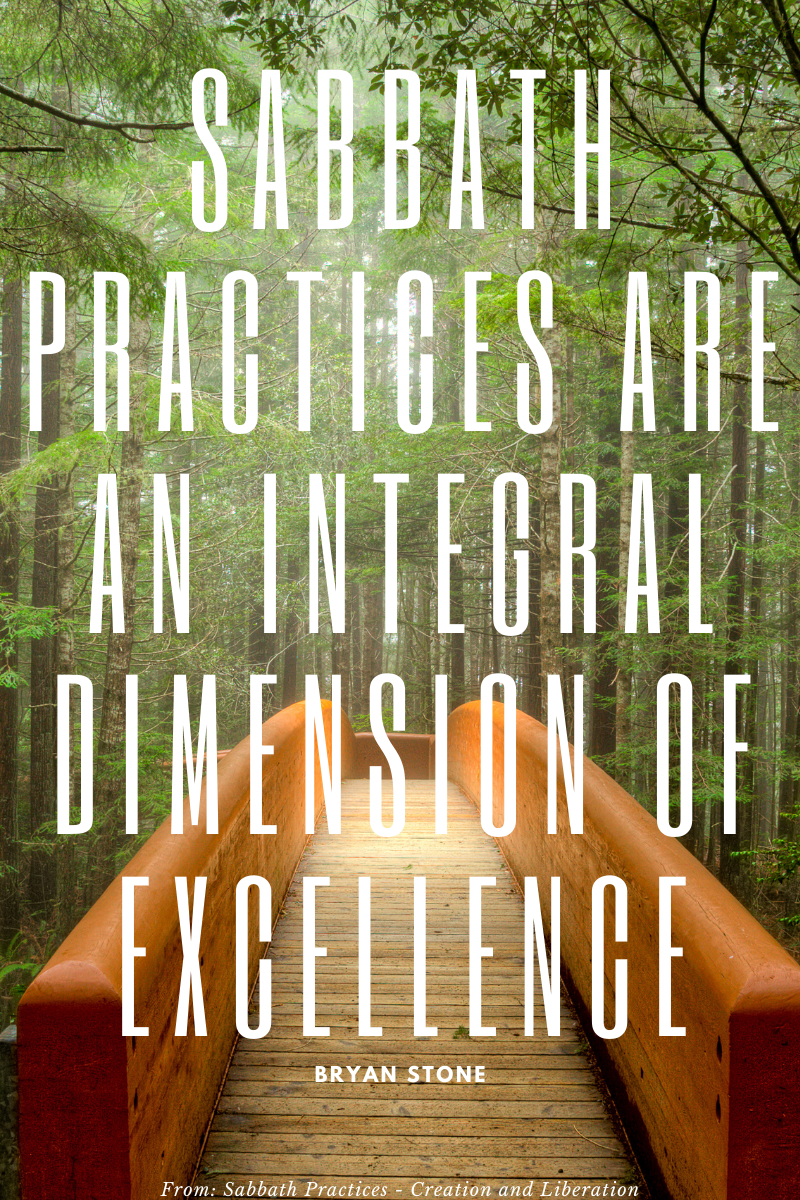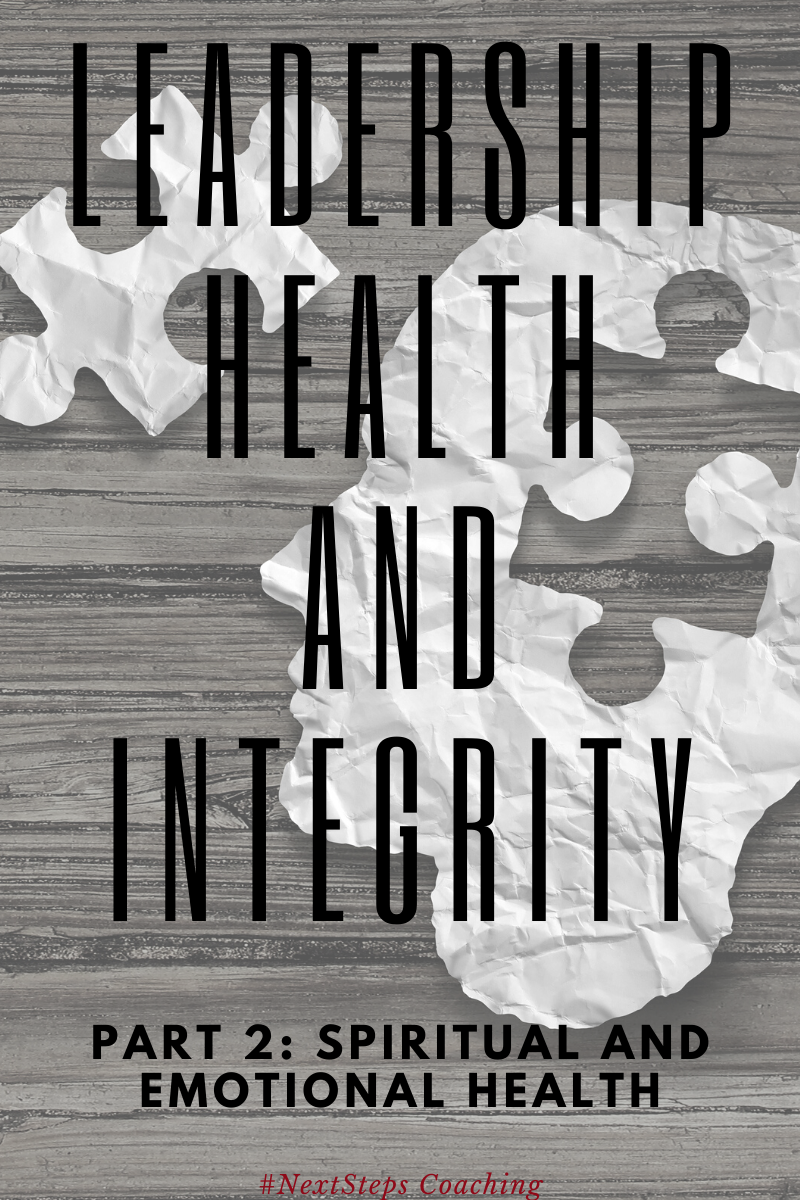
Spiritually healthy leadership grounds high-achievers by connecting them with their purpose as they seek to influence the world. In this installment of our “Healthy Leader” series, we examine this idea of spiritually healthy leadership.
Spiritual Health: Connecting With The Divine
I spent nearly a decade in pastoral ministry before fully embracing my call as a coach. Each position led me a step closer in the process, but there was always a sense of, “this is not quite it…” when it came to feeling fulfilled.
Over the course of that decade, I learned a lot about myself, belonging in a community, healthy boundaries, interpersonal relationships, and effective communication. I spent time at every level of leadership.
At every point along the way, and with every “promotion” that was gifted to me (we can talk later about why I hate that term when applied to the church…) I found that I had fewer and fewer people to talk to. My friend list grew smaller, my mentors became fewer, and the circle of close confidants decreased.
When I started working with executives, I found the same was true with them. The higher they were on the ladder, the fewer people they had to talk to. That was, at least in part, their need for a coach. They looked around and realized they had no one to talk to.
Most of the time, I was (or at least felt) alone. The executives I worked with echoed that pain. Maybe you too can relate.
When I wasn’t alone, and people were genuinely trying to support me, we talked about a wide range of topics.
- Marriage
- Family
- Exercise
- Diet
- How much work I was doing
- The quality of my preaching
Never once, not once in ten years, did someone ever ask: how are you at connecting with God? Is your spiritual life healthy?
A New Direction
That was part of my journey into both my doctoral school program and hiring my own coach. I needed that accountability. Studies, like one conducted by the Percept Group, seem to echo this, with nearly one-third of Los Gatos residents polled identifying “dealing with stress” as their chief spiritual concern. (1)
This in part explains the rise of contemplative prayer and mediation among leaders. There is a recognition that part of the human condition is wired to connect with something beyond ourselves. 
I teach an eastern philosophy class. In it, we examine Steve Jobs’ affection for Buddhism and how other great leaders are implementing some of these teachings. These leaders are yearning for something outside of the physical and temporal to belong to.
In general then, here are some practices and guidelines to help you grow and cultivate a healthy spiritual side of leadership.
Cultivating Spiritual Health
Spiritual Disciplines
Spiritual disciplines offer a historically rooted approach to healthy leadership. Disciplines have always been an important component for people of faith. Through self-sacrifice, we discover deeper meaning, significance, and a sense of calling.
In his seminal work on the spiritual disciplines, Richard Foster notes their importance when he says,
“The classical Disciplines of the spiritual life call us to move beyond the surface living into the depths. They invite us to explore the inner caverns of the spiritual realm. They urge us to be the answer to a hollow world.” (2)
There are many forms of spiritual disciplines like fasting, prayer, mediation, holy pilgrimages, silence, forgiveness, solitude, and tithing.
The point in each of these is the same: denying some aspect of yourself or your personal will to spend time listening and connecting with God and his guiding power.
“Few things will keep us on course in the exercise of our leadership and facilitate the care of our soul as much as a meaningful prayer when engaged in consistently.” (3)
Rest
Many leaders find it hard to take regular time off. The demands of their job, the joy of feeling needed, and the unexpected crises or tendencies of workaholism can make it hard to pull away from the demands of work.
To combat this, the ancient Jewish people instituted a practice called sabbath. More than a day off, the sabbath is a specific and intentional time to rejuvenate and recharge emotionally and spiritually.
This rest includes the need for extended vacation days as well. Workers operating under increasingly stressful conditions are taking what seems to be a smart approach by working more to meet demand. The problem is that the increased workload does not equal increased productivity. In the law of diminishing return, and most studies show this, maximum productivity happens somewhere around 30-35 hours.
Operating in a job of high demand and need it’s easy to feel needed and guilty for taking time off. But a refusal to take time off can exacerbate the problem of burnout. In addition to regular Sabbath rest, leaders must use their full allotment of vacation time. This is not happening, as a 2019 study found. (4)
Staying Spiritually Fit
Spirituality can be a tough subject to talk about. The common American mantra to not talk about politics and religion has hurt our public decorum. Smart employers, and high-capacity leaders, remain vigilant in their quest for staying healthy in all areas of life.
This includes spiritual health, however, the leader defines that.
In future posts, we’ll continue to intertwine areas of health and explore how creative outputs like hobbies contribute to a well-rounded leader.
How do you remain spiritually healthy?
The Wrap Up
If you or someone you know is facing burnout, please get help. Email me to set up your first appointment.
Looking for more ways to fight against burnout? Here are 50 self-care tips.
Want the entire series as a Kindle book? Go here.
Sources:
(1). Source: Ferguson, Jane K., Eleanor W. Willemsen, and MayLynn V. Castañeto. 2010. Centering prayer as a healing response to everyday stress: A psychological and spiritual process. Pastoral Psychology 59 (3) (06): 305-29.
Original Study: Percept Group. (2004). Ministry Area Profile 2004 Compass Report for Saint Mary of the Immaculate Conception, 219 Bean Avenue, Los Gatos, CA 95030, Study Area Definition: Custom Polygon 1990–2004. Rancho Santa Margarita, CA: Percept Group.
(2). Source: Foster, Richard J. “The Spiritual Disciplines: Door to Liberation.” Celebration of Discipline: The Path to Spiritual Growth, 1. Rev. 1st ed. San Francisco: Harper & Row, 1988.
(3). Source: Rima, Samuel D. “Spiritual Self Leadership.” Leading from the Inside Out: The Art of Self-leadership, 138. Grand Rapids, Mich.: Baker Books, 2000.
(4) Source: https://www.cnn.com/travel/article/unused-vacation-days-trnd/index.html


